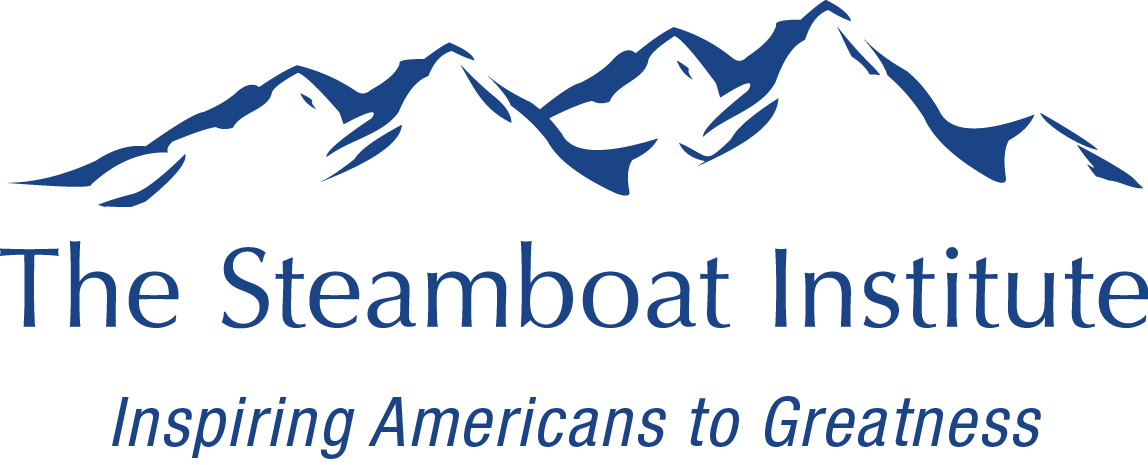
The Steamboat Institute co-signed an open letter warning of the many problems with the health spending provisions in the Covid-19 relief bill currently being considered by Congress.
Read the open letter below.
***
The New Push to Expand Government’s Role in Health Care Won’t Work. Here’s How We Can Help Americans Instead.
Democrats in Congress have proposed a COVID-19 relief bill that includes provisions to dramatically increase government subsidies for health coverage for millions of people who already have insurance while further expanding government control over health care.
Among many other provisions, the legislation would increase government payments to insurance companies via the Affordable Care Act by:
- Removing even the de minimis premium payments required of people earning less than 150% of the federal poverty level.
- Paying more of the premium for those earning above that amount.
- Newly subsidizing health coverage for the highest-income Americans.
Most of the spending on premium subsidies will be paid to insurers on behalf of people who already have coverage. The bill would subsidize 85% of premiums for employees to continue COBRA coverage through September. It also gives states that have not expanded Medicaid to cover able-bodied adults a five-percentage-point increase in federal matching funds for traditional Medicaid recipients for two years if they expand their programs.
It also would draw employees away from their job-based health insurance into the exchanges, where they would have inferior coverage.
Instead of addressing Obamacare’s many flaws and costly mandates, the Democrats’ misguided proposal simply throws more money at insurance companies each time they increase premiums.
According to the Congressional Budget Office, these provisions would increase the deficit by tens of billions of dollars over the next two years and will fuel health care cost inflation without substantially expanding coverage.
Despite projections that millions of people would lose their employer-based health coverage due to COVID-19, a Heritage Foundation analysis of actual insurance market enrollment data for the first three quarters of 2020 found that the economic dislocation caused by COVID-19 did not appear to have had a significant adverse effect on health insurance coverage. The study concluded that “health insurance enrollment has remained fairly stable this year.”
Furthermore, the COVID-19 relief legislation that Congress passed in March 2020 already enhanced federal Medicaid funding, required states to continue covering current Medicaid recipients, and specified that additional unemployment compensation payments were not to be counted as income for purposes of determining Medicaid or Children’s Health Insurance Program eligibility. Consequently, Medicaid and CHIP enrollment ballooned from 70.9 million individuals in March 2020 to 77.3 million in September (the most recent month for which figures are available).
Rather than the mistargeted and wasteful spending in the proposed legislation that papers over the failures of government-run health care, Congress should pursue policies that reduce health costs and expand access to care and health care choices by eliminating cost-increasing government mandates and unleashing the power of innovation and competition.
We have developed policies to do just that, a plan estimated to lower premiums by up to a quarter and expand enrollment in private plans—all without spending one dime of federal taxpayer dollars. Such an approach succeeds because it empowers and protects individuals and families—rather than insurance companies and big government.
We would be happy to work with Congress to advance these solutions to address the problems facing Americans in health care today.
Signatories:
Marie Fishpaw, The Heritage Foundation
Grace Marie Turner, Galen Institute
Joseph Antos, PhD, American Enterprise Institute
Doug Badger, The Heritage Foundation and Galen Institute
Brian Blase, PhD, Galen Institute
Stephen T. Parente, PhD, University of Minnesota
Richard E. Ralston, Americans for Free Choice in Medicine
Sal Nuzzo, The James Madison Institute
Lee S. Gross, MD, Docs 4 Patient Care Foundation
Dave Hoppe, Hoppe Strategies
Ed Haislmaier, The Heritage Foundation
Senator Beverly Gossage, Kansas State District 9
Robin T. Smith, TN Representative, HD26
Steven White, M.D., Catholic Medical Association
Bob Carlstrom, Association of Mature American Citizens (AMAC)
Jennifer Schubert-Akin, The Steamboat Institute
Lisa B. Nelson, ALEC
James L. Martin, 60 Plus Association
Saulius “Saul” Anuzis, 60 Plus Association
Mary Mahoney, 60 Plus Association
Grover Norquist, Americans for Tax Reform
Andy Mangione, AMAC Action
Rick Santorum, Former U.S. Senator, Pennsylvania
Thomas Schatz, Citizens Against Government Waste
Elizabeth Wright, Citizens Against Government Waste
Mike Stenhouse, Rhode Island Center for Freedom and Prosperity
Preston Noell III, Tradition, Family, Property, Inc.
James Taylor, The Heartland Institute
Aaron Stover, The Heartland Institute
Michael S. Parker, Catholic Medical Association
David J. Theroux, Independent Institute
Graham H. Walker, Ph.D., Independent Institute
Nina Owcharenko Schaefer, The Heritage Foundation
Robert E. Moffit, Ph.D, The Heritage Foundation
Bethany Marcum, Alaska Policy Forum
Jessica Anderson, Heritage Action for America
Newt Gingrich, Former Speaker of the House of Representatives
Joe DeSantis, Gingrich360
Robin Walker, Foundation for Government Accountability
Paul Gessing, Rio Grande Foundation
Beth Haynes, Galen Institute
Marilyn Singleton, American Association of Pharmaceutical Scientists
Roger Stark, Washington Policy Center
Ronald E. Bachman, President & CEO Healthcare Visions
Jeff Kanter, Freedom Hub Health
David Wilson, Wilson Partners
Merrill Matthews, Institute for Policy Innovation
Sen. Bryce E. Reeves, Virginia Republican Minority Whip
William F. Shughart II, Independent Institute
David E. Wilson, Wilson Partners
Rep. Eric M. Redman, Former Idaho State Representative
AnneMarie Schieber, The Heartland Institute
Elizabeth Stelle, Commonwealth Foundation

